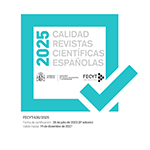Elective affinities between the Nazi mythology and the Heideggerian ontology, according to the young Levinas
Abstract
From his initial stay in Freiburg between 1928 and 1929 until his early writings of the 1930s, Emmanuel Levinas expressed his enthusiastic adherence to the new German phenomenological orientation, in particular to existential philosophy of Martin Heidegger. However, after the seizure of Nazi power in 1933 and the support of the Freiburg master to the new regime, the French philosopher makes a critical review of the basis of “hermeneutics of facticity” as of its possible elective affinity with the “philosophy of Hitlerism”. This article aims to analyze the Levinasian reflections about the shared background between Heideggerian ontology and Nazism, based on three myths present in the National Socialist palingenesic call: the appeal to the “community of war”, the “community of the work” and the “community of blood”.Downloads
Article download
License
In order to support the global exchange of knowledge, the journal Logos. Anales del Seminario de Metafísica is allowing unrestricted access to its content as from its publication in this electronic edition, and as such it is an open-access journal. The originals published in this journal are the property of the Complutense University of Madrid and any reproduction thereof in full or in part must cite the source. All content is distributed under a Creative Commons Attribution 4.0 use and distribution licence (CC BY 4.0). This circumstance must be expressly stated in these terms where necessary. You can view the summary and the complete legal text of the licence.











